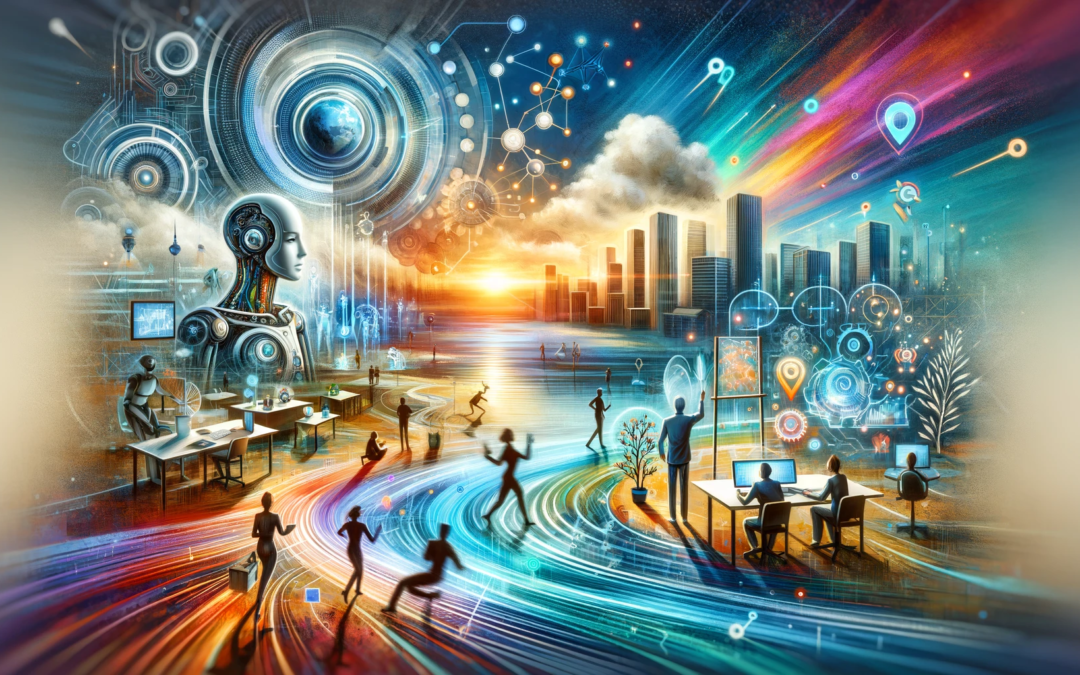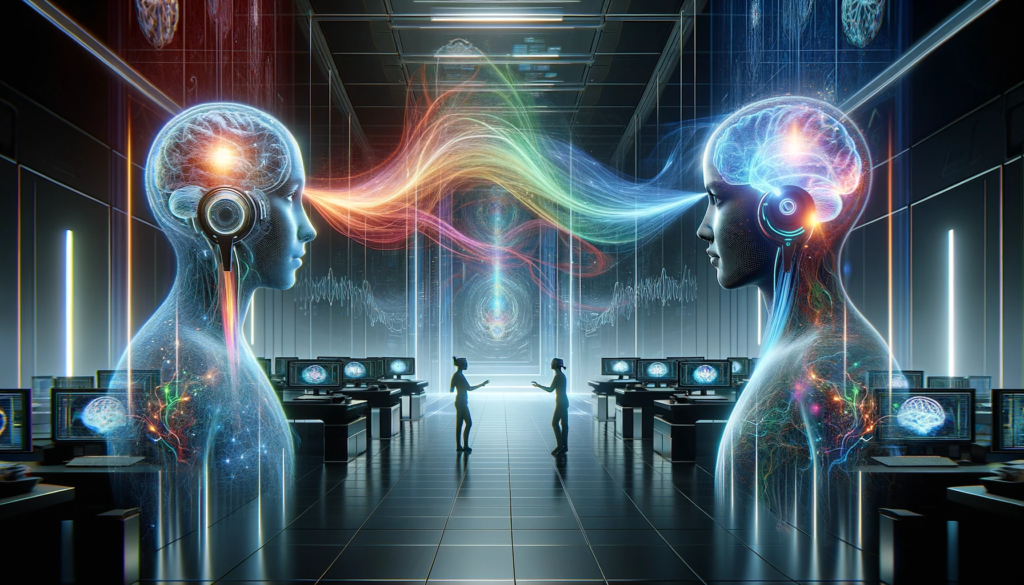Welcome to the future, where artificial intelligence (AI) is no longer just a sci-fi concept. It’s here, it’s evolving rapidly, and it’s poised to transform the way we work. In this blog post, we’ll explore the fascinating world of AI and its impact on the future of work.
AI-Driven Industry Transformation
AI is revolutionizing industries across the board. From manufacturing to healthcare, finance to the creative sectors, no industry is left untouched. Picture a world where robots work alongside humans on the factory floor, or where AI-powered algorithms diagnose diseases with remarkable accuracy. The possibilities are endless, and the changes are happening as we speak.
Emerging Job Roles and Skills
With the rise of AI, new job roles and skill sets are emerging. Data scientists, AI trainers, and algorithm developers are just a few examples of the exciting career paths that have sprung up. To stay relevant in this new era, professionals need to adapt and upskill. Embrace the opportunities that AI presents, and explore how you can leverage your existing skills to thrive in this AI-driven landscape.
AI and Job Automation
Job automation is a common concern when it comes to AI. But let’s not jump to conclusions just yet. While some jobs may be automated, new roles will also be created. The key lies in human-AI collaboration. By working together, humans and AI can achieve more than either can do alone. So instead of fearing job loss, let’s focus on how we can adapt and find new ways to collaborate with AI.
Remote Work and AI
The COVID-19 pandemic has accelerated the adoption of remote work, and AI is playing a crucial role in making it possible. AI tools are facilitating virtual collaboration, improving productivity, and enhancing work-life balance. From virtual assistants to intelligent project management platforms, AI is transforming the way we work, regardless of our physical location.
Ethical Considerations and Workforce Impacts
As we embrace AI in the workplace, we must also consider the ethical implications. Data privacy, workforce displacement, and bias in AI algorithms are just a few of the challenges we need to address. We must strive for a balance between innovation and responsible AI usage to ensure a fair and inclusive future of work.
Preparing for the Future
So, how can businesses, educators, and policymakers prepare for this AI-influenced work landscape? Embrace AI as a tool for growth, invest in AI education and training, and create policies that foster innovation while protecting workers’ rights. As individuals, we can proactively engage with AI by seeking out learning opportunities and staying updated on the latest AI trends in our respective fields.
Engaging with the Audience
We’d love to hear from you! How has AI impacted your industry or job role? What opportunities and challenges do you see in the workplace? Share your thoughts and join the discussion in the comments below.
Conclusion
The future of work is undoubtedly intertwined with AI. It brings both transformative potential and challenges. By embracing adaptability, forward-thinking, and responsible AI usage, we can navigate this new landscape with confidence. The future is here, and with AI by our side, we have the power to shape it for the better.










